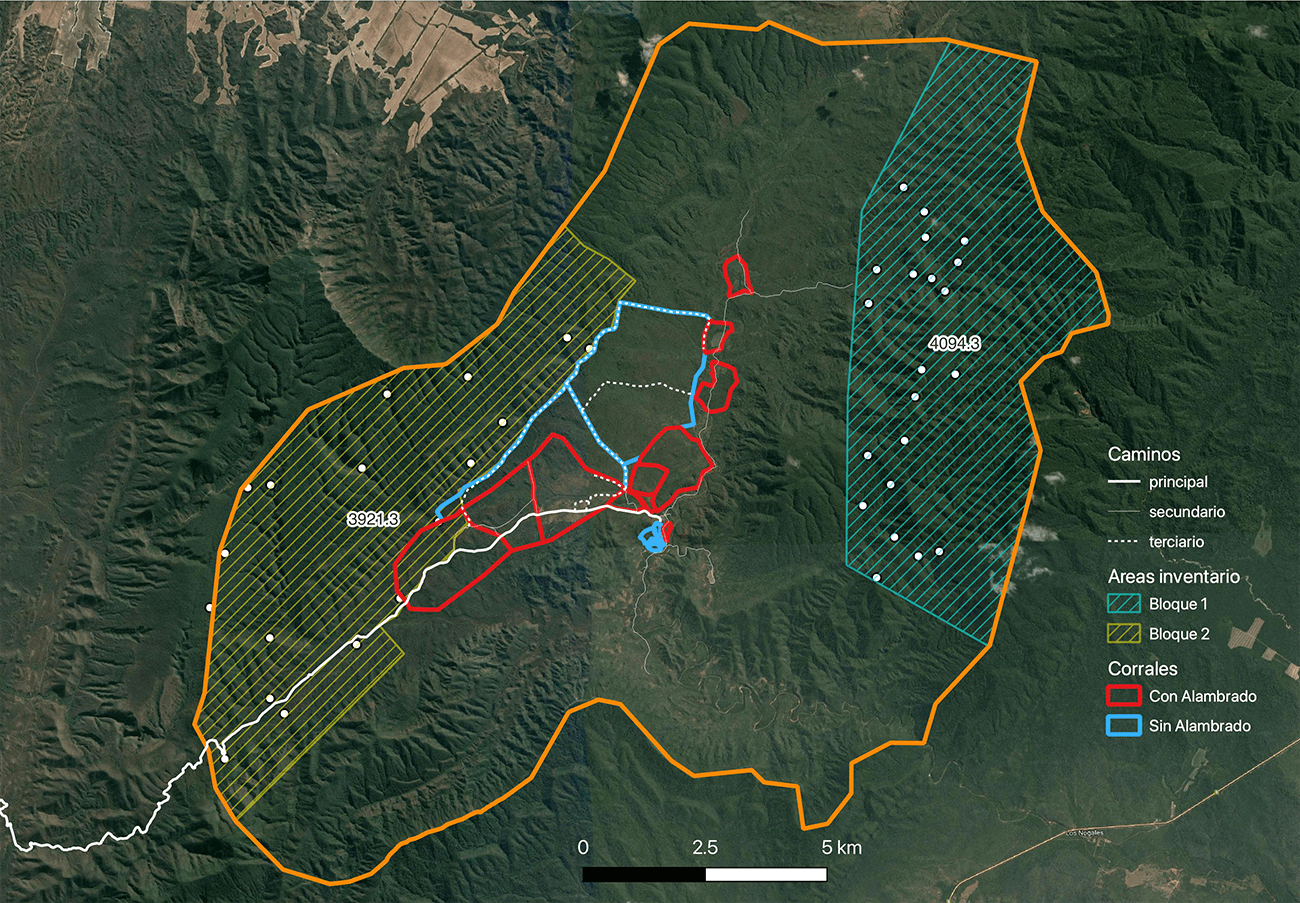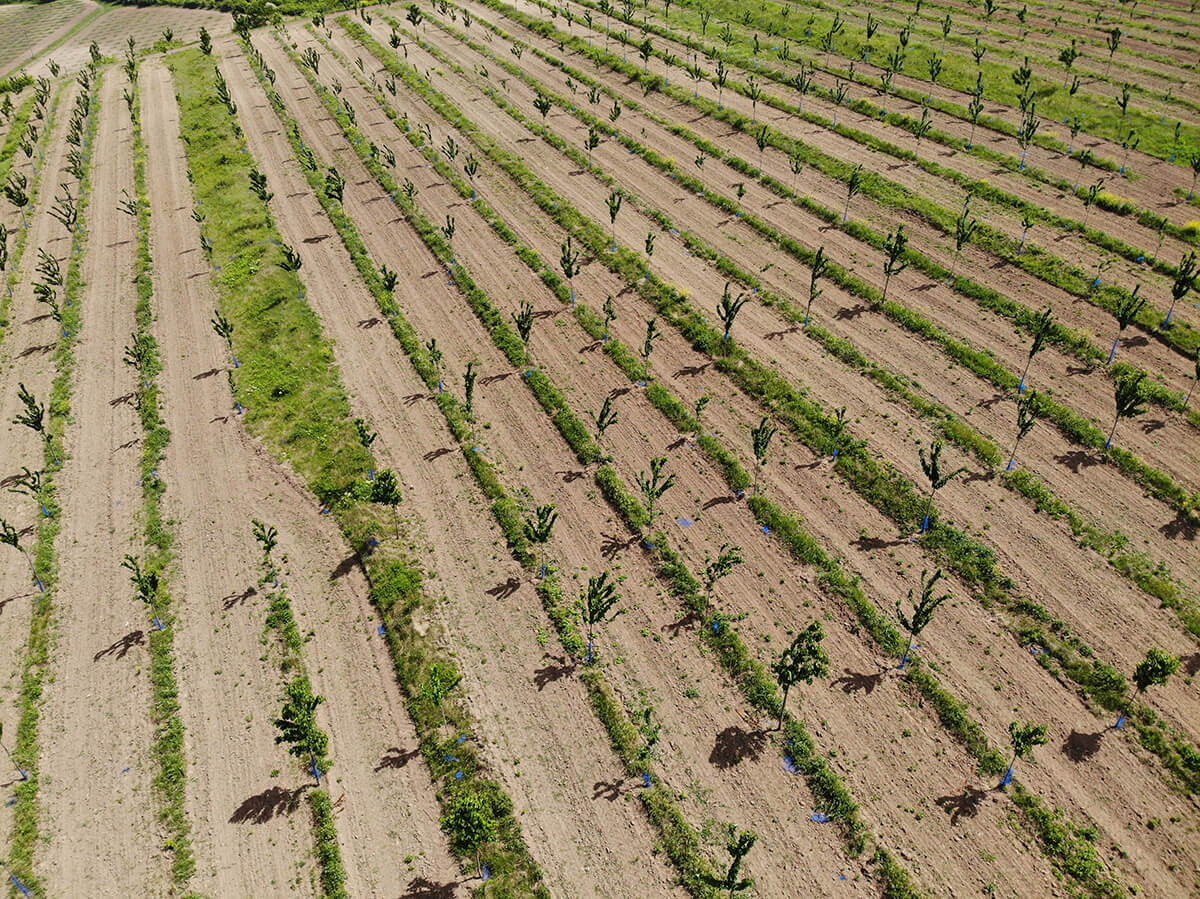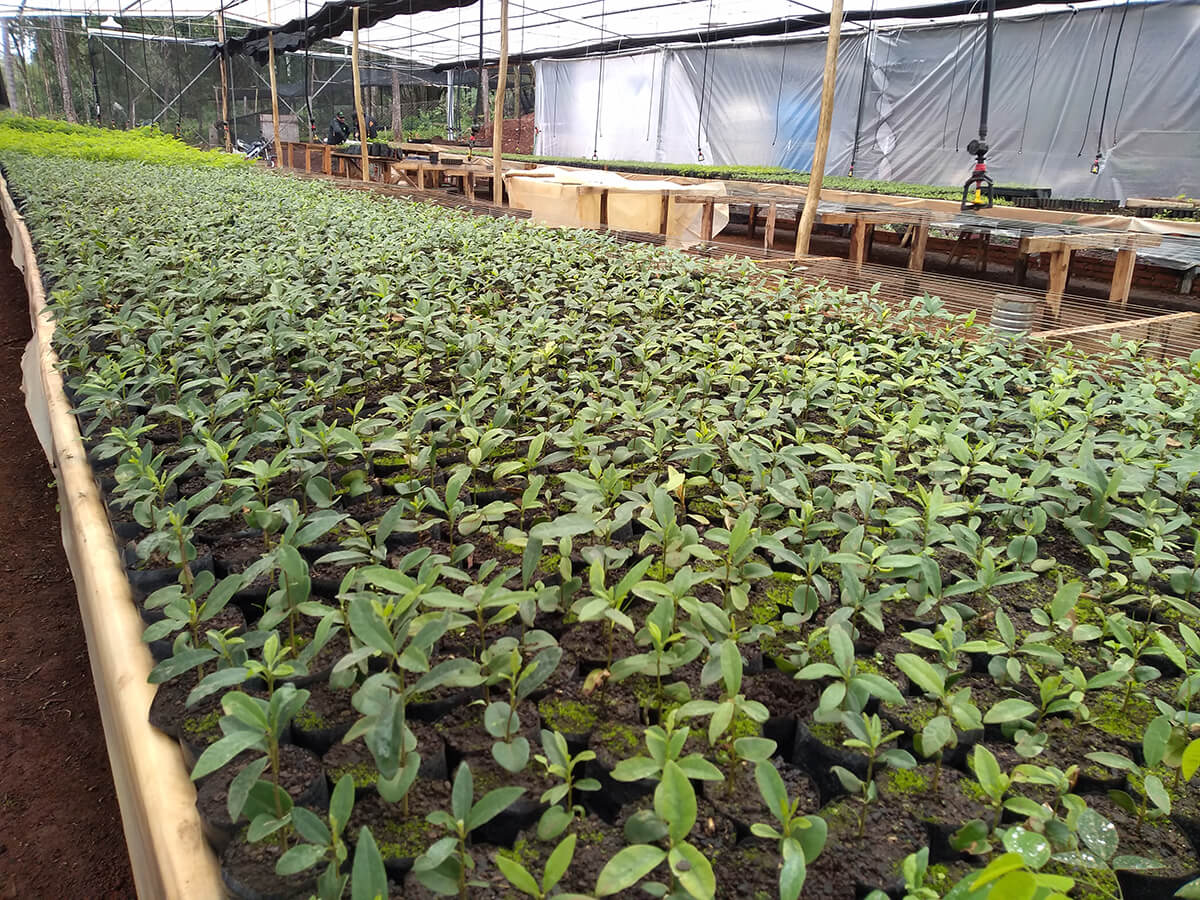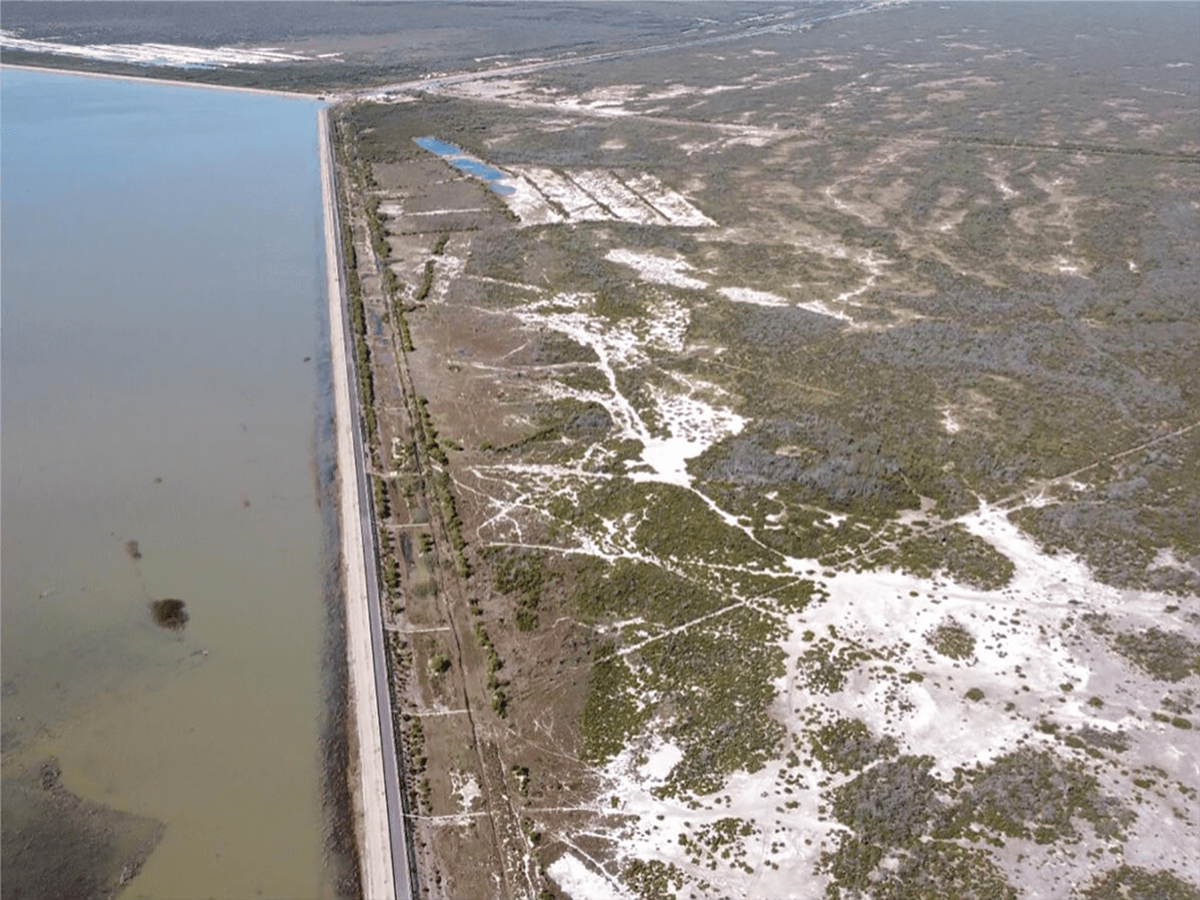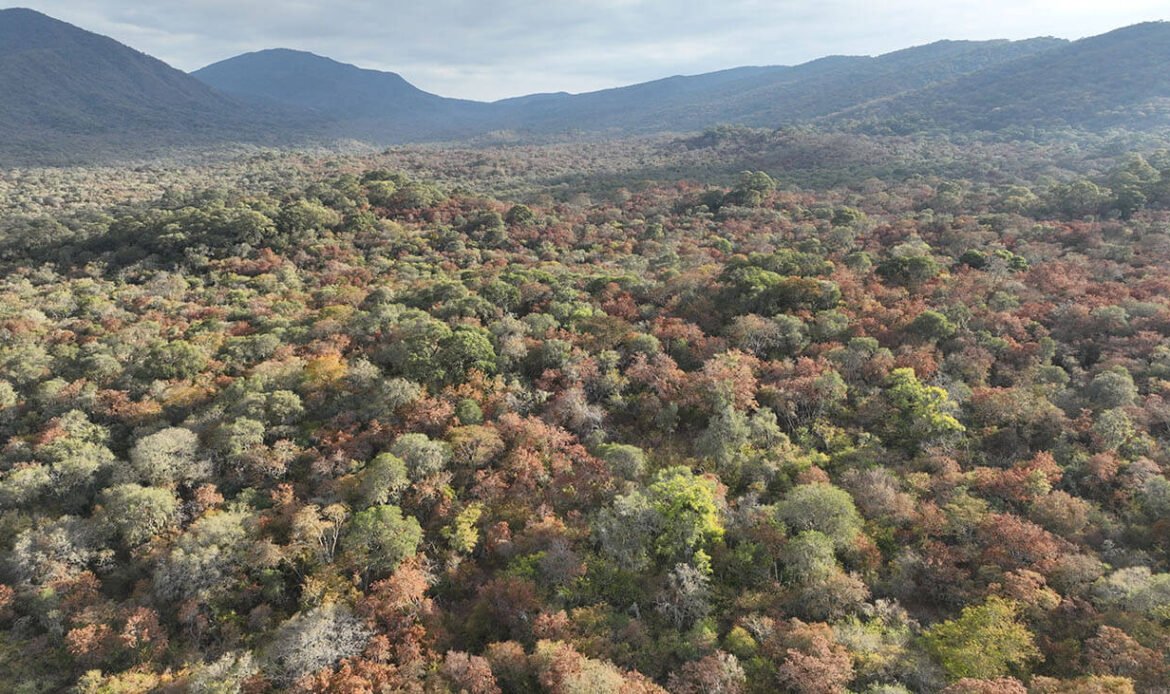
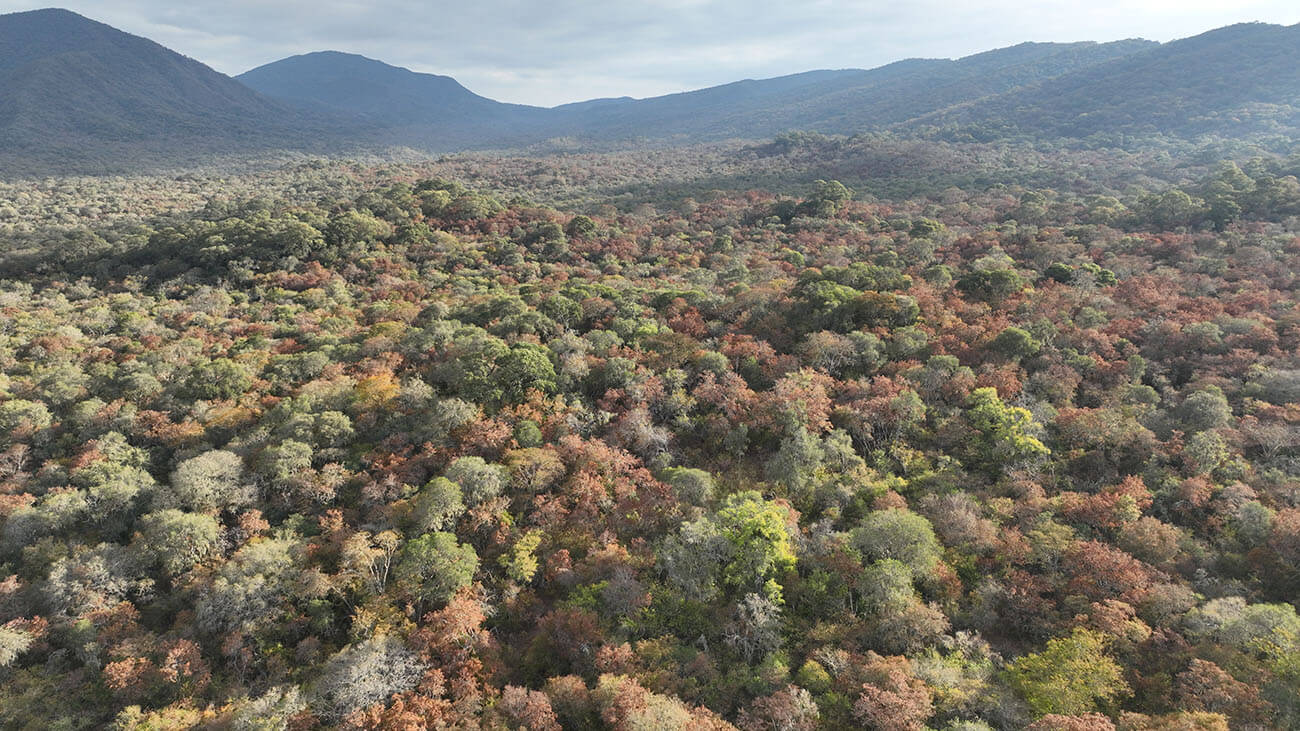
We respect growth, profitability, and economic viability considering all production costs and necessary investments to maintain the forest’s benefits and long-term profits.
The project area spans over 10,000 hectares within a privately owned estate, encompassing a transition zone between the native Chaco and Yungas forests. The project activities will focus on restoring degraded Dry Chaco Forest habitat located in the Gran Chaco region of Argentina. The Gran Chaco is the second largest forest in South America in terms of both size and biodiversity, following the Amazon rainforest.
The project area has been degraded significantly over the previous decades due to excessive cattle grazing, pastoral land conversion, and selective and unsustainable artisanal logging. The project aims to regenerate the area by employing two main silvicultural strategies: assisting natural regeneration and enrichment planting.
These are our objectives:
- Implement a model of native forest management.
- Increase the increment of valuable timber and improve the economic potential.
- To conserve existing forest areas.
- Activate and promote standing timber reserves.
- To obtain timber and non-timber products from the forest.
- Integrate local people into the various activities carried out on the farm.
- Sequester carbon in two ways:
- Improving forest growth through forestry. One of the main axes of the productive model of our land is the capture of carbon or greenhouse gases (GHG); which is planned to be achieved through forestry; mainly with the enrichment of environments, and with the planting of exotic species such as walnut and eucalyptus.
- Through the use of new technologies such as biochar, which is a highly absorbent charcoal, specially produced and originally used as a soil input, it is a method of reusing wood waste by converting it into activated charcoal that is reincorporated into the soil. Biochar is a means of increasing fertility, increasing plant yields and sequestering carbon. Other market uses for biochar are being discovered as universities and biochar projects conduct extensive research on this versatile material and its cation exchange properties.
- Scientific and educational participation is envisaged in the project. It is the will of the administration to invite third party organisations to use the farm for projects, especially those related to the monitoring and study of flora and fauna.
- To develop a holistic livestock management system focused on the regeneration and recovery of pastures, conserving the soil and animal development in a natural and sustainable balance.
- Implement management according to the rules of an internationally accepted certification system. Our Land and all its operations will be subject to certification processes. The target certifications are the following:
- FSC, Forest Stewardship Council. Sustainable Forest Management.
- PEFC / CERFOAR, Programme for the Endorsement of Forest Certification / Sistema Argentino de Certificación Forestal. Sustainable Forest Management
- ISO OSHAS 18001, Occupational Health and Safety Assessment. Management of occupational health and safety of all employees.
- ISO 14001, Environmental Management System (EMS).
About the project
Country: Argentina
Activity: Afforestation and sustainable forest management
Land size: 10,073 hectares
Timeline: 40 years
GHG Benefit: 2,2 million tCO2e
Additionality: CO2 certification / holistic livestock farming/biochar
For more information on this investment opportunity, please contact us here:
Other projects:
Myroxylon’s commitment is the restoration of the native forest through sustainable management and planting techniques.
About our land and region
The land, called “Amakella” is located in the province of Salta, north-eastern Argentina, in the west of the department of Anta, municipality of Las Lajitas. The climate of the area is subtropical mountainous, with a dry season, where rainfall is concentrated between the months of October and April, under a monsoon, subtropical and continental rainfall regime. Winds from the north are warm and blow all year round; those from the south blow in the winter months.
Finca Amakella – Algarrobal is located in the upper basin of the Juramento River. This basin is the third most important in the Northwest of Argentina. The farm is crossed from North to Southeast, along the entire central valley, by the Las Cañas River, the only one with a permanent flow throughout the year, there are small tributaries, but they are only active during the rainy season. All these surface watercourses are in an excellent state of conservation.
The land is located in the Yungas eco-region, phytogeographic region of transition forest and montane forest. The vegetation within Finca Amakella – Algarrobal belongs to the phytogeographic region of the Yungas, mainly represented by the Montana Forest and Transition Forest, but parts of Chaco Serrano Park can be found due to the presence of the mountain ranges that face the humid masses coming from the east and northeast, causing rainfall and acting as a real orographic barrier, reducing rainfall on some western slopes.
The farm is covered by forests, approximately half of which have some degree of deterioration due to cattle ranching undercover and intensive logging over the last 80 years. The forests can be categorized into three environments: parts of the Chaco Serrano Park, parts of the Yungas, and transition zones.
These characteristics make it possible to develop trees that produce timber of high commercial value, due to their quality and hardness, as well as the development of biomass capable of capturing carbon at levels suitable for the issuance of certificates with lucrative capacity in the international market.

